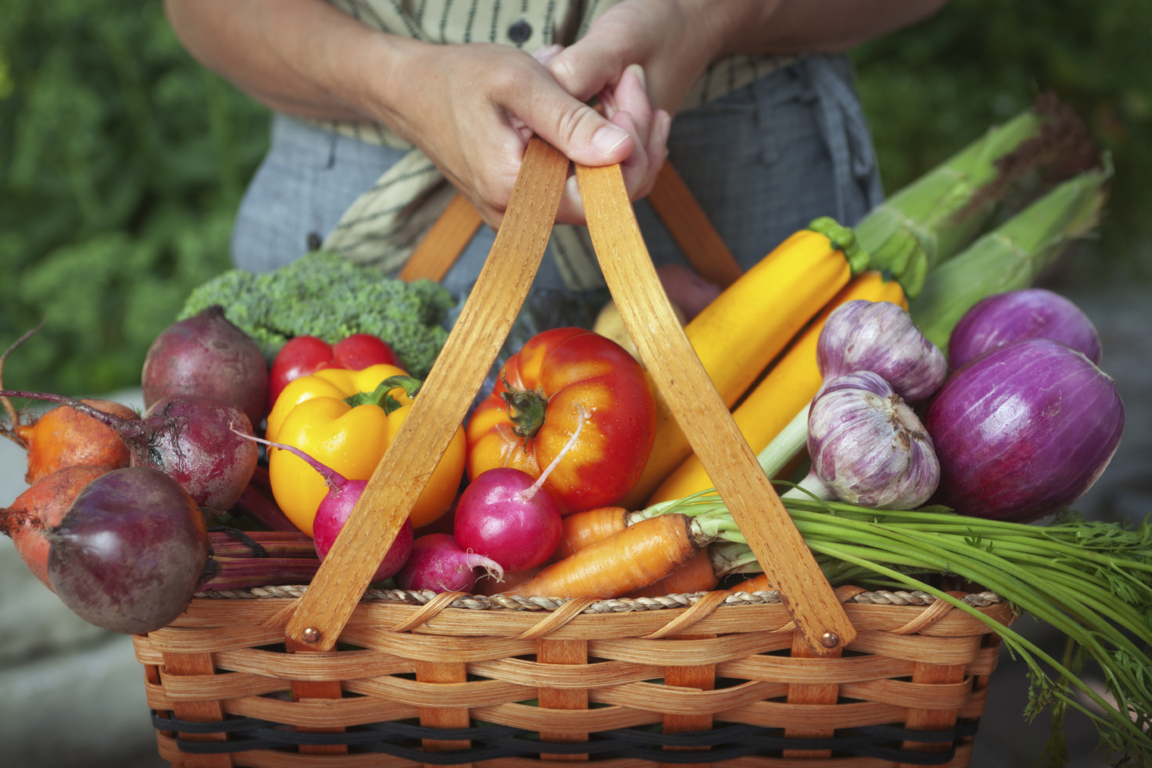Image: Take Back Your Health Conference CC BY 2.0
Food is an essential part of our everyday lives, so the choices we make about what eat, can have an impact. But with so many options it can be confusing to know what actions to take.
Here are our top tips for eating sustainably:
Eat less meat
This is the simplest and cheapest thing you can do.
Factory farmed meat relies on large quantities of grains like soya to feed the animals. Important ecosystems, including the Amazon rainforest, are destroyed to grow this feed. Precious resources like water are also wasted, and animal’s methane, transporting food and keeping animals in artificial environments all adds to the carbon footprint from meat. So cutting down is an easy way to make a difference.
If you’re not ready to go fully veggie, Meat Free Mondays have some great tips on how to cut down the amount of meat you consume, and tasty vegetarian and vegan recipes – and it’ll save you money too!
Buy Organic and/or Fairtrade
Both of these have built-in environmental standards.
Organically farmed animals are raised in open space, with sustainable feed, and farmers knowing and caring for their animals, rather than using techniques like mass-dosing with antibiotics. Meanwhile, organic plant-based food is grown without artificial fertilisers and pesticides that damage the environment in their production and use. In developing countries, Fairtrade cooperatives agree to environmental standards, and are paid a fair price for their crops so that they can afford to do this.
Both organic and Fairtrade products can be a little more expensive, but if you cut down on meat and waste less food, the savings you make should outweigh the extra few pence on your sustainable purchases.
Plan your meals for the week / month and only buy what you need.
This sounds obvious, but in the UK, we currently throw away around a third of all the food we produce.
Partly that’s due to food being rejected at the farm, or by shops. But a lot of this waste is people buying food and then throwing it away. A little planning can help you cut down on waste, and save some money.
Remember that ‘best before’ and ‘display until’ dates are only a guide, and often food will be perfectly edible after these dates (unlike ‘use by’ for meat and dairy products which should be observed). This NHS guide explains more.
Find recipes for leftovers, or keep extra portions in the freezer.
If planning ahead isn’t your strong point, the alternative approach is to get creative with what’s leftover.
Love Food Hate Waste have lots of recipe ideas, and you can search according to what’s left in your fridge or cupboard. If you’d like to take this approach to eating out too, the Real Junk Food Project take leftover food that would otherwise be thrown away by shops and turn it into tasty meals, provided on a ‘pay what you feel’ basis.
And if you’ve got space for a freezer, rather than filling it up with ready-meals, try popping leftover portions of a big meal into a container, and freezing it for another week.
Buy reusable versions of items that might be thrown away, such as coffee cups or straws.
12 million tonnes of plastic ends up in our oceans every year: Blue Planet II was a wake up call to many people that we all need to cut down the amount of plastic that we use once and then throw away.
Check out Friends of the Earth’s #PlasticFreeFridays for simple alternatives to single-use plastic. And to avoid having to buy food wrapped in unnecessary layers of plastic, check out The Clean Kilo. It’s a new shop in Digbeth, which sells non-perishable food with no packaging: you take along your own reusable containers and fill them up in-store.
And alongside personal changes, ask your MP to support sustainability in the food system.
If you’d like explore any of these ideas, or share your own, pop into Peace Hub for a friendly chat over a cup of tea (Fairtrade tea, with organic milk, in a reusable cup – of course!)


